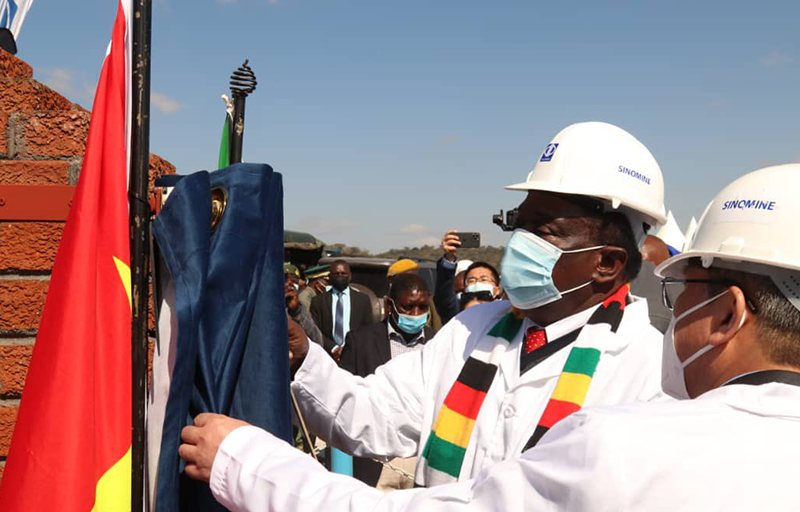GERALD MAROKO & TAKUDZWA HILLARY CHIWANZA
Zimbabwe continues to place optimism on the burgeoning lithium mining sector, with the country’s president Emmerson Mnangagwa setting a revenue target of $10 billion for the country’s booming lithium industry – calling it the “new oil” a few months ago.
 |
| Pic - New Zimbabwe.com |
Speaking at the Chambers of Mines Conference recently, John Mangudya (Reserve Bank of Zimbabwe governor) stated that income generated from lithium value addition and beneficiation will likely surpass foreign currency realized through tobacco and gold combined.
Zimbabwe is the world’s fifth largest lithium producer, with its lithium output steadily increasing in recent years, producing 1,200 metric tonnes of the battery metal in 2021.
Mnangagwa believes that the production and processing of lithium will create much-needed jobs in the country, an uphill task as that may seem. He also highlighted that Zimbabwe is lucky to have vast lithium deposits that are easy and cheap to explore.
The RBZ governor added that just as oil was used to develop the Middle East, Zimbabwe will use its vast lithium deposits to achieve the same feat.
The Zimbabwean government recently banned the export of any mineral ore containing lithium, with Mines and Mining Minister Winston Chitando stating that lithium-bearing ore will only be exported with the government's permission.
The lithium industry is among the minerals expected to contribute to Zimbabwe’s target to grow the mining sector to $12 billion by 2023.
The ban on lithium was effected in the context of socio-economic growth and development, in which Zimbabwe’s government seeks to “ensure that the vision of the President to see the country becoming an upper-middle income economy has been realized”.
Emmerson Mnangagwa, the country’s president, has been preaching a neoliberal message of “re-engagement” and “investment” — hoping that attracting [local and foreign] private capital to invest through a “business-friendly” climate will have a trickle-down effect resulting in job opportunities and value addition for the country’s citizens.
This is however a vainglorious agenda because mining companies, whether local or private, simply take all the profits for their private gain while the local communities suffer.
If Zimbabwe’s lithium industry can meet RBZ revenue target, it will significantly boost the country's economy.
However, it remains to be seen whether the lithium industry can deliver on this promise, as it will face several challenges, such as securing foreign investment, building infrastructure, and navigating the global supply chain. And the most significant hurdle relates to corrupt activities associated with some of the foreign investor mining firms, notably from China, as well as the flight of profits outside Zimbabwe.
There has been wide criticism of the secretive nature of Zimbabwe’s mining contracts with Chinese companies. Some of the Chinese companies which have acquired lithium mines and projects worth a combined $678 million since 2022 include Sinomine Resource Group, Zhejiang Huayou Cobalt, and Chengxin Lithium Group.
Nonetheless, the government’s efforts to develop the lithium industry can bring about positive changes and create job opportunities for Zimbabwe’s citizens – if this is done altruistically with the people’s interests at heart.





















0 Comments